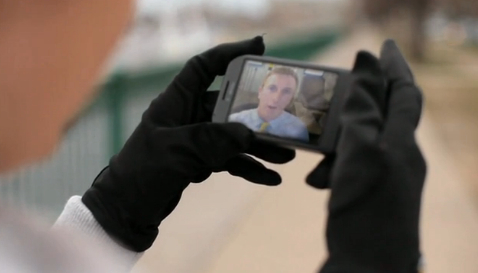 It seems counterintuitive for those who proudly wear the "hacker" label to seek ways to work with established industry players rather than being disruptive in a healthcare sector badly in need of radical change, but that was what happened at Health and Wellness Innovation 2013, the recently concluded 11-day event better known as MIT Media Lab's Health and Wellness Hackathon.
It seems counterintuitive for those who proudly wear the "hacker" label to seek ways to work with established industry players rather than being disruptive in a healthcare sector badly in need of radical change, but that was what happened at Health and Wellness Innovation 2013, the recently concluded 11-day event better known as MIT Media Lab's Health and Wellness Hackathon.
The hackathon brought engineering and medical faculty and students together with companies including Humana, Novartis and Pharmiweb Solutions to build commercially ready products using MIT Media Lab's open-source CollaboRhythm platform and open standards.
"The hackathon itself is not enough to produce change, but it's an opportunity to expose important players in the ecosystem—pharma, insurers, medical diagnostics companies, startup entrepreneurs, consumer electronics companies—to the value of using and contributing to these platforms," organizer Dr. John Moore tells Fast Company. "It's rare to get these players to converge, but these 80 people are influencers, and now they know each other so they can collaborate. Big innovations will come when they all see how they can benefit each other."
The requirement to use open-source software—also including the MIT-developed Indivo X personalized health records system—for building health trackers and other digital health tools is meant to foster interoperability, according to the Fast Company report. "The tradition in health care technology is, 'This is our device, we make our own software,'" Moore explains. "The goal is to connect that bit of knowledge to the rest of your health experience. Just keeping track of your step count, for example, won't let you change the rest of your life."
He says that the commonality might be more difficult for developers, "but it ensures that the prototype will be something that has legs."
The six teams that gathered in Cambridge, Mass., Jan. 22-Feb. 1 each developed its own products:
- hiVIVA, a gaming app that helps HIV/AIDS patients remember to take their necessary medications. A companion prototype device being tested in Bangladesh lets patients test their own blood.
- Beacon, an open-source variation on the home hub for capture and transmission of data from wireless, home-based sensors and medical devices, created for monitoring patients with congestive heart failure.
- My Op, an educational and support app for women about to have endometriosis surgery and for physicians to conduct postoperative assessment of symptoms, which if left untreated, could lead to complications and rehospitalization.
- Tremo Cup and Brady Glove, devices from Aeon Health to monitor the effectiveness of Parkinson's disease medications in controlling tremors and for measuring slowness of movement known as Bradykinesia, a hallmark of Parkinson's.
- Pressure Free, a system for controlling hypertension, combining a blood pressure cuff, a Fitbit for measuring movement and a pill bottle with 3G connectivity that sends SMS reminders to take medications.
- Epicenter, which includes an app for tracking epileptic seizures with the help of a cap and a wrist sensor, plus another app to help patients measure adherence to a high-fat, high-protein, low-carb "ketogenic" diet that can help control seizures.
Kaiser Permanente contributed $15,000 not as prize money but to help commercialize or extend for research purposes the creations. Other partners, included the Robert Wood Johnson Foundation, Health 2.0 and MIT's Hacking Medicine project, provided mentoring to the participants.














